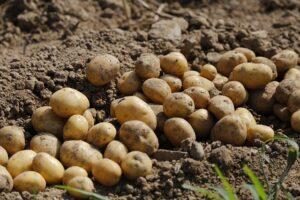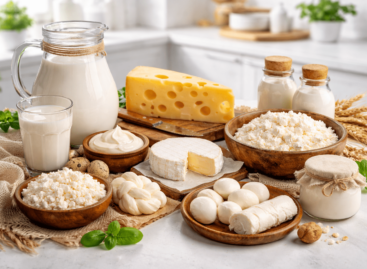Many tenders continue to help potato producers
Potatoes are the third most popular food worldwide, after rice and wheat, and are a staple in the diet of billions of people. It is also a staple food that is often used in Hungary, which is also regularly on the tables of domestic consumers – drew the attention of Dr. Márton Nobilis, the State Secretary responsible for the food industry and trade policy of the Ministry of Agriculture, at the National and International Potato Consultation and the Variety and Plant Protection Technology Demonstration held at the Gyulatanya Variety Experiment Station in Nébih, Gyulatanya.

(Photo: Pixabay)
Dr. Márton Nobilis explained that the importance of the potato is clearly shown by the fact that nowadays, despite the changed consumption needs and habits, this food item is still most often put on the table in households, either as a side dish or as a main dish.
This plant accounts for almost one third of vegetable consumption per capita
The state secretary emphasized that more than 30 varieties of potatoes were set up for experiments at the Gyulatanya station on a sowing area of about 2 hectares, in cooperation with the country’s most important domestic breeders and distributors of seed tubers. In order to increase the competitiveness of domestic potato cultivation, in the framework of the Rural Development Program, a number of technological developments became eligible for support in 2020, thereby contributing to a safe food supply. It was possible to apply for the development of storage capacities, the transition to precision farming technologies in terms of machinery, the implementation of agricultural water management investments, the creation of irrigation communities or the development of processing capacities. Dr. Márton Nobilis emphasized that the horticulture sector is extremely important for the Ministry of Agriculture, as many challenges had to be overcome in recent years. The investment tenders announced as part of the KAP Strategic Plan provide help and support to producers who see market potential in potato cultivation. Horticulture can therefore continue to count on investment-related measures: support for the purchase of machines and tools, and the construction of vegetable storage facilities. In addition, a special intervention serves to increase the energy self-sufficiency of agricultural farms and reduce energy dependence. But the support for participation in agricultural cooperation, which is also important in horticultural production, will continue, he added.
The state secretary also presented the two calls for tenders, with a total budget of HUF 200 billion, which help the processing of potatoes
The subsidy is 50% of eligible costs, and 70% in the case of renewable energy technologies. It will be possible to submit support applications from August 13, 2024 for calls supporting smaller-scale projects, and from September 17, 2024 for calls supporting complex projects. According to our hopes, domestic potato cultivation will develop thanks to the most modern technologies and dedicated producers – he concluded his speech.
AM
Related news
Milk and dairy product prices decreased at the beginning of the year in Hungary
🎧 Hallgasd a cikket: Lejátszás Szünet Folytatás Leállítás Nyelv: Auto…
Read more >Related news
MOHU: 5,200 return points are in operation, but 47 larger settlements still do not have RE points – public “enema” machines may be introduced
🎧 Hallgasd a cikket: Lejátszás Szünet Folytatás Leállítás Nyelv: Auto…
Read more >Change in Rossmann Hungary’s leadership: Kornél Németh decided to move towards new challenges in 2026
🎧 Hallgasd a cikket: Lejátszás Szünet Folytatás Leállítás Nyelv: Auto…
Read more >








